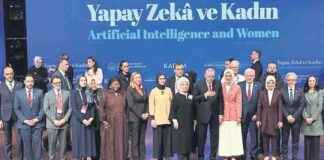Hulusi Akar, the Chairman of the Turkish Parliament’s National Defense Committee, has filed a lawsuit against Nevşin Mengü for 100,000 TL in moral compensation, alleging insults on her YouTube channel. Akar’s lawyer, Samet Can Olgaç, filed the lawsuit at the Ankara court, claiming that Mengü’s comments about Akar in a video posted on her YouTube channel on November 21st were severe insults and defamation.
Violation of Personal Rights
In the petition, Mengü is accused of linking Akar to an incident without any official duties or authority, thereby targeting him. Allegations were made that Akar organized a secret meeting and directed the process leading to the dismissal of lieutenants, while also influencing Mr. Devlet Bahçeli on this matter. These entirely fictional statements were deemed a violation of personal rights. The petition demands 100,000 TL in moral compensation for Mengü’s remarks.
“Those who make irresponsibility and vulgarity their profession…”
A few days ago, Hulusi Akar made a statement on his social media account regarding the issue, stating:
“No one can assassinate someone’s reputation for personal PR and ratings. It is unacceptable for a so-called journalist to fabricate, create, and disseminate entirely fictional information that has no connection to reality. We condemn those who disregard the principles of press ethics and lack intellectual morals! We will not allow those who have made irresponsibility and vulgarity their profession to occupy public opinion. We will hold accountable those who throw stones into the well and those who jump after the stone within the framework of the law.”
The lawsuit filed by Hulusi Akar against Nevşin Mengü has sparked discussions about freedom of speech, defamation, and the responsibilities of journalists in the digital age. As the case unfolds, it raises important questions about the boundaries of expression, journalistic ethics, and legal repercussions in the age of social media.
The Impact of Social Media on Journalism
In today’s digital age, social media platforms like YouTube have become powerful tools for individuals to share their opinions, news, and commentary with a global audience. While this has opened up new avenues for free expression and democratized information sharing, it has also raised concerns about the spread of misinformation, hate speech, and defamation.
Journalists and content creators on platforms like YouTube have a responsibility to uphold ethical standards, fact-check their information, and ensure that their content does not violate the rights of others. The case of Hulusi Akar vs. Nevşin Mengü serves as a reminder of the impact of social media on journalism and the need for responsible reporting in the digital age.
Legal Ramifications of Defamation
Defamation, which includes both libel (written defamation) and slander (spoken defamation), can have serious legal consequences. In Turkey, individuals have the right to protect their reputation and personal rights from false and damaging statements made by others.
The lawsuit filed by Hulusi Akar against Nevşin Mengü highlights the legal ramifications of defamation in the digital age. As the case moves forward in the court system, it will be essential to determine whether Mengü’s statements crossed the line from free speech to defamation and whether she should be held accountable for her words.
Freedom of Speech vs. Personal Rights
The case of Hulusi Akar suing Nevşin Mengü also brings into question the delicate balance between freedom of speech and personal rights. While freedom of speech is a fundamental human right that must be protected, it is not absolute and can be limited when it conflicts with the rights of others.
In this case, Akar argues that Mengü’s statements crossed the line from legitimate criticism to personal attacks, violating his personal rights and reputation. As the legal proceedings unfold, it will be crucial to consider where the boundaries of freedom of speech lie in relation to protecting personal rights and reputations.
In conclusion, the lawsuit filed by Hulusi Akar against Nevşin Mengü raises important questions about freedom of speech, journalistic ethics, and legal responsibilities in the digital age. As the case progresses, it will be crucial to strike a balance between upholding freedom of expression and protecting personal rights in the online sphere.





















